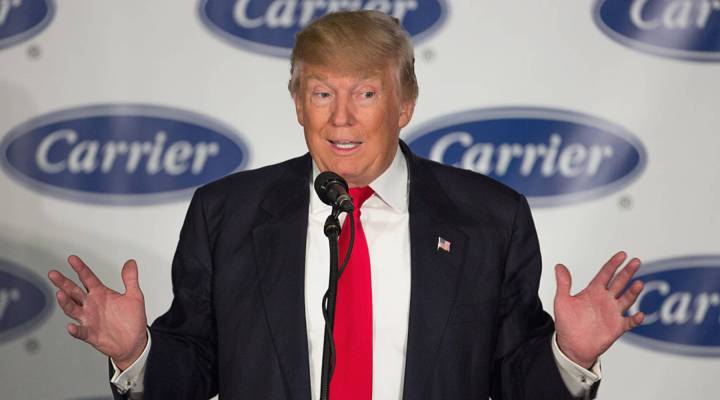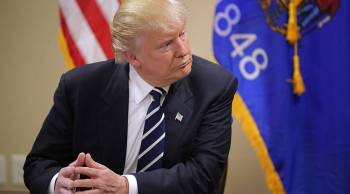
How will we know if Trump’s business tweets are translating into jobs?
How will we know if Trump’s business tweets are translating into jobs?

President Donald Trump has promised that he will restore well-paid manufacturing jobs to blue-collar communities across the country. He has argued that U.S. companies have closed domestic factories and sent those jobs to foreign countries where labor is cheaper, like Mexico and China. And he has blamed that hollowing out of American manufacturing on deals like NAFTA; U.S. corporate tax rates; and the ways in which U.S. businesses are regulated.
On the campaign trail and after the election, Trump has called out big companies, including Toyota, Carrier and General Motors, criticizing them on Twitter and in speeches for plans to close U.S. plants and lay off U.S. workers. And he’s praised companies, and taken credit, when they’ve announced plans to retain jobs in the U.S. and expand production here.
Bob Smith, an electrician and president of Steelworkers Union Local 420 in Massena, New York, is a Democrat who supported Bernie Sanders in the primaries and Hillary Clinton in the general election. But he wholeheartedly welcomes Trump’s personal interventions to pressure companies to remain and expand in the U.S.
“It’s about damn time,” Smith said.
Smith works at one of Alcoa’s last remaining aluminum smelters in the U.S. In the past decade, as commodity prices slumped due to weak global growth and cheap Chinese aluminum flooded the global market, Alcoa closed production lines in Massena and around the U.S.
Smith saw hundreds of well-paid factory jobs in his union local in Massena with good health and pension benefits eliminated.
“This is the first time in a long time, with this talk — and it’s, quite frankly, talk right now,” Smith said. “However, if that gets turned into action, I know there’s some optimism right now that we haven’t seen in a while.”
But how will we know if presidential talk actually leads to more jobs created in the U.S. ?
Greg McBride, chief financial analyst at Bankrate.com, said it will probably take “at least a six-month period to really glean whether or not there’s a trend. There’s a sense that companies want to stay in the good graces of the new administration.”
But labor economist Aparna Mathur at the American Enterprise Institute said that any direct effect from Trump tweeting at companies and other pressure tactics will be hard to verify in the official employment data from the Bureau of Labor Statistics.
Mathur said the number of additional jobs that might result would be statistically insignificant compared to the overall monthly churn in job numbers, which can run into the hundreds of thousands.
“We’ve seen a lot of threats, and we’ve seen him tweeting at companies and talking about job creation,” Mathur said. “But it’s hard to imagine that companies have fundamentally changed the way they operate as a result.”
Mathur said that what could produce change when it comes to jobs is economic policies that the Trump administration and Republicans in Congress might implement, including tax cuts, punitive tariffs, renegotiated foreign trade deals and increased infrastructure spending.
There’s a lot happening in the world. Through it all, Marketplace is here for you.
You rely on Marketplace to break down the world’s events and tell you how it affects you in a fact-based, approachable way. We rely on your financial support to keep making that possible.
Your donation today powers the independent journalism that you rely on. For just $5/month, you can help sustain Marketplace so we can keep reporting on the things that matter to you.


















